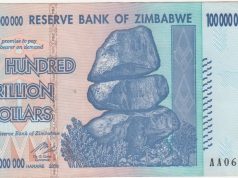by Justin Schier, Chief Creative Officer Dopamine Inc. @justinschier
If you’ve never experienced the British TV phenomenon phenomenon known as Golden Balls, it’s worth watching a bit, even for kitsch value. Even though it went off the air in 2009, there are hours of it available on YouTube. It was basically a just-as-shlocky, slightly more sophisticated version of Deal or No Deal.
Most TV game shows cleverly combine chance and skill to create compelling entertainment, such as The Price is Right, Wheel of Fortune, and even Jeopardy. The first rounds of Golden Balls are pure lottery-style chance, but the interesting part comes when the game is whittled down to just two players and a large amount of money is on the table.
The finalists face each other in a variation of the Prisoner’s Dilemma, named by Albert Tucker in his 1950’s game theory writings. They must either trust each other in order to split the pot, or attempt betrayal and try to run away with the entire amount. But if BOTH attempt betrayal, both walk away with nothing.
Watch this and you’ll get it.
My favorite parts:
- When Ibrahim calls Nick an idiot over and over.
- When it becomes apparent that Nick is far from an idiot.
- The host calls £13,600 “wealth”, but that’s beside the point.
I’m certain Nick had it all figured out long before his appearance on the show. Ibrahim falls into the trap set by the game’s creators, but Nick figures out a brilliantly simple combination of psychology and logic that will ensure a “Split” outcome. When the final moment arrives, Ibrahim is almost mind-controlled into choosing “Split”, which Nick does as well, as he planned from the beginning. Each walks away with £6,800, and all is well.
Nick is obviously a good person, and truly did game the system. He had such control over the situation that he could have easily double-crossed Ibrahim at the very end and walked away with all the money, but he didn’t. Try and name another game show where there are two winners instead of one.
Is this an inherent weakness in this particular game’s design? Yes and no. This kind of trick probably wouldn’t work repeatedly on subsequent pairs of contestants, since they would still be just as likely to betray each other. However, Nick did create a unique, first time hack that just took a little bit of clever but honest convincing. Well, honesty wrapped up in a big lie that is.
To bring all this a little closer to home, are there things you can do to make your gamified experience hack-proof? Of course you can come close by thinking like a hack and a cheat, and closing loopholes as best you can. But on the other hand, in a situation like a game show, doesn’t it add to the fun when a perfectly legitimate hack like this is possible? Cheers to Nick for figuring it out, and stealing the show’s biggest secret.
If that kind of “wealth” was on the line, would you Split, or Steal?
PS – I had thought Simon Pegg’s career was going so well, but I guess he has to host TV game shows to make ends meet. He’s looking a bit old, too.








[…] latest blog post is out! Gaming the System – Split or Steal Style – about Golden Balls UK TV Show: gamification.co/2012/05/04/gam… 3 hours ago RSS RSS – Posts RSS – Comments Subscribe via […]
Hello guys, I bought two tickets for the GSummit but unfortunately we won’t be able to attend. If someone is interested please contact me, I selling for 700 each. renan@poptask.com